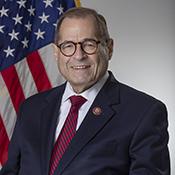0
0
0
Marijuana Opportunity Reinvestment and Expungement Act
3/9/2023, 5:47 PM
Summary of Bill HR 3617
The Marijuana Opportunity Reinvestment and Expungement Act, also known as Bill 117 HR 3617, is a piece of legislation introduced in the US Congress. The main goal of this bill is to decriminalize marijuana at the federal level and address the racial disparities in marijuana enforcement.
Under this bill, marijuana would be removed from the list of controlled substances, allowing states to regulate it as they see fit. The bill also includes provisions to expunge prior marijuana convictions and provide for resentencing of individuals currently serving time for marijuana-related offenses.
Additionally, the Marijuana Opportunity Reinvestment and Expungement Act aims to create opportunities for individuals and communities that have been disproportionately impacted by the war on drugs. This includes establishing a fund to support job training, reentry services, and other programs to help those affected by marijuana criminalization. Overall, the bill seeks to address the social and economic injustices caused by marijuana prohibition and create a more equitable and just system for all individuals involved.
Under this bill, marijuana would be removed from the list of controlled substances, allowing states to regulate it as they see fit. The bill also includes provisions to expunge prior marijuana convictions and provide for resentencing of individuals currently serving time for marijuana-related offenses.
Additionally, the Marijuana Opportunity Reinvestment and Expungement Act aims to create opportunities for individuals and communities that have been disproportionately impacted by the war on drugs. This includes establishing a fund to support job training, reentry services, and other programs to help those affected by marijuana criminalization. Overall, the bill seeks to address the social and economic injustices caused by marijuana prohibition and create a more equitable and just system for all individuals involved.
Congressional Summary of HR 3617
Marijuana Opportunity Reinvestment and Expungement Act or the MORE Act
This bill decriminalizes marijuana.
Specifically, it removes marijuana from the list of scheduled substances under the Controlled Substances Act and eliminates criminal penalties for an individual who manufactures, distributes, or possesses marijuana.
The bill also makes other changes, including the following:
- replaces statutory references to marijuana and marihuana with cannabis,
- requires the Bureau of Labor Statistics to regularly publish demographic data on cannabis business owners and employees,
- establishes a trust fund to support various programs and services for individuals and businesses in communities impacted by the war on drugs,
- imposes an excise tax on cannabis products produced in or imported into the United States and an occupational tax on cannabis production facilities and export warehouses,
- makes Small Business Administration loans and services available to entities that are cannabis-related legitimate businesses or service providers,
- prohibits the denial of federal public benefits to a person on the basis of certain cannabis-related conduct or convictions,
- prohibits the denial of benefits and protections under immigration laws on the basis of a cannabis-related event (e.g., conduct or a conviction),
- establishes a process to expunge convictions and conduct sentencing review hearings related to federal cannabis offenses,
- directs the Government Accountability Office to study the societal impact of state legalization of recreational cannabis,
- directs the National Highway Traffic Safety Administration to study methods for determining whether a driver is impaired by marijuana,
- directs the National Institute for Occupational Safety and Health to study the impact of state legalization of recreational cannabis on the workplace, and
- directs the Department of Education to study the impact of state legalization of recreational cannabis on schools and school-aged children.
Read the Full Bill
Current Status of Bill HR 3617
Bill HR 3617 is currently in the status of Introduced to Senate since April 4, 2022. Bill HR 3617 was introduced during Congress 117 and was introduced to the House on May 28, 2021. Bill HR 3617's most recent activity was Received in the Senate and Read twice and referred to the Committee on Finance. as of April 4, 2022
Bipartisan Support of Bill HR 3617
Total Number of Sponsors
1Democrat Sponsors
1Republican Sponsors
0Unaffiliated Sponsors
0Total Number of Cosponsors
228Democrat Cosponsors
226Republican Cosponsors
2Unaffiliated Cosponsors
0Policy Area and Potential Impact of Bill HR 3617
Primary Policy Focus
Crime and Law EnforcementPotential Impact Areas
- Business records
- Census and government statistics
- Child health
- Congressional oversight
- Criminal procedure and sentencing
- Department of Justice
- Drug trafficking and controlled substances
- Drug, alcohol, tobacco use
- Educational facilities and institutions
- Elementary and secondary education
- Executive agency funding and structure
- Government information and archives
- Government lending and loan guarantees
- Government studies and investigations
- Government trust funds
- Health programs administration and funding
- Immigration status and procedures
- Licensing and registrations
- Poverty and welfare assistance
- Roads and highways
- Sales and excise taxes
- School administration
- Small business
- State and local government operations
- Transportation safety and security
- Worker safety and health
Alternate Title(s) of Bill HR 3617
Marijuana Opportunity Reinvestment and Expungement Act
Marijuana Opportunity Reinvestment and Expungement Act
MORE Act
To decriminalize and deschedule cannabis, to provide for reinvestment in certain persons adversely impacted by the War on Drugs, to provide for expungement of certain cannabis offenses, and for other purposes.
MORE Act
Marijuana Opportunity Reinvestment and Expungement Act
MORE Act of 2021
Marijuana Opportunity Reinvestment and Expungement Act of 2021
Comments
Sponsors and Cosponsors of HR 3617
Latest Bills
National Defense Authorization Act for Fiscal Year 2026
Bill S 1071December 11, 2025
Electric Supply Chain Act
Bill HR 3638December 11, 2025
State Planning for Reliability and Affordability Act
Bill HR 3628December 11, 2025
Increasing Investor Opportunities Act
Bill HR 3383December 11, 2025
ASCEND Act
Bill S 1437December 11, 2025
Providing for consideration of the bill (H.R. 3001) to advance commonsense priorities.
Bill HRES 486December 11, 2025
Snow Water Supply Forecasting Reauthorization Act of 2025
Bill HR 3857December 11, 2025
Federal Firefighters Families First Act
Bill HR 759December 11, 2025
ADS for Mental Health Services Act
Bill S 414December 11, 2025
Providing for consideration of the bill (H.R. 2550) to nullify the Executive Order relating to Exclusions from Federal Labor-Management Relations Programs, and for other purposes.
Bill HRES 432December 11, 2025
Cannabis Administration and Opportunity Act
Bill S 4591August 28, 2023
Providing for consideration of the bill (H.R. 3617) to decriminalize and deschedule cannabis, to provide for reinvestment in certain persons adversely impacted by the War on Drugs, to provide for expungement of certain cannabis offenses, and for other purposes; providing for consideration of the bill (H.R. 6833) to amend title XXVII of the Public Health Service Act, the Internal Revenue Code of 1986, and the Employee Retirement Income Security Act of 1974 to establish requirements with respect to cost-sharing for certain insulin products, and for other purposes; and for other purposes.
Bill HRES 1017March 9, 2023
Ensuring Safe Capital Access for All Small Businesses Act of 2021
Bill HR 2712January 11, 2023
Ensuring Access to Counseling and Training for All Small Businesses Act of 2021
Bill HR 2652January 11, 2023
Homegrown Act of 2021
Bill HR 2649January 11, 2023





